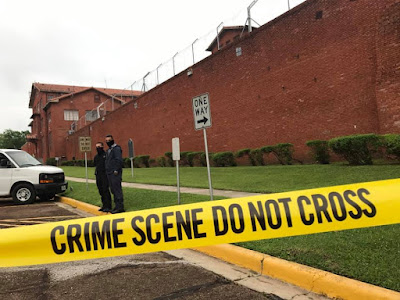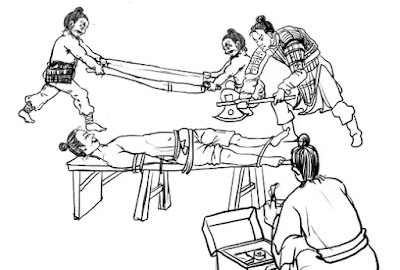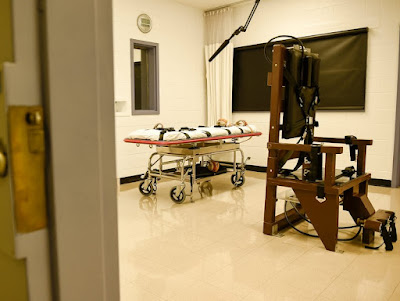The top prosecutor in Harris County is proposing a new way for Texas to determine if a death-sentenced inmate is intellectually disabled and therefore ineligible for execution: use the current clinical books.
When determining whether someone with a death sentence has a mental disability, Texas has long used outdated standards partially created by elected judges. Now that those standards have been ruled unconstitutional, one district attorney wants the state to use a markedly different measuring stick: current medical science.
Harris County District Attorney Kim Ogg sent a brief to the Texas Court of Criminal Appeals Wednesday afternoon in the case of Bobby Moore, a man convicted in the 1980 shooting death of a Houston supermarket clerk.
Justice Ruth Bader Ginsburg wrote in the court’s
opinion that the state’s test created an “unacceptable risk” of executing intellectually disabled people, a practice deemed unconstitutional.
But while the ruling tossed out Texas’ old way of determining disability, it didn’t create a new one. Instead, cases of death-sentenced inmates who were deemed competent for execution under the old test
were suddenly ripe for new litigation, and at least two men who had been on death row for decades had their
sentences changed to life in prison — all while awaiting a final ruling on Moore’s intellectual capacity.
Ogg asked for Moore's sentence to be reduced to life in prison, and her brief also asked Texas to create a new way of determining intellectual disability — one that sticks to the medical books.
“‘Unacceptable risk’ necessitates that the States should strictly adhere to the definitions of intellectual disability as contained within the most current versions of the clinical manuals,” said the brief.
She implored Texas to conform to the standards set by the American Psychiatric Association, similar to how Louisiana and Mississippi determine intellectual disability. If the Texas court accepts Ogg’s suggestion, death penalty experts say it will put Texas in line with the Supreme Court's ruling and will put fewer Texas death penalty cases in front of the high court in the future.
➤ Click here to read the full article
Source: The Texas Tribune, Jolie McCullough, November 3, 2017
⚑ | Report an error, an omission, a typo; suggest a story or a new angle to an existing story; submit a piece, a comment; recommend a resource; contact the webmaster, contact us:
deathpenaltynews@gmail.com.
Opposed to Capital Punishment? Help us keep this blog up and running! DONATE!
"One is absolutely sickened, not by the crimes that the wicked have committed,
but by the punishments that the good have inflicted." -- Oscar Wilde







.jpg)





